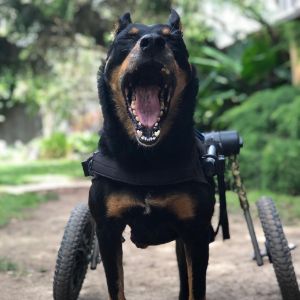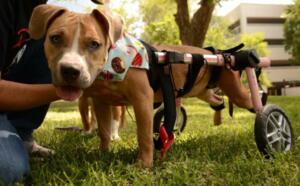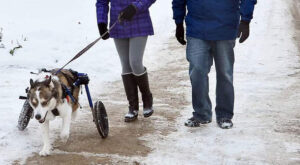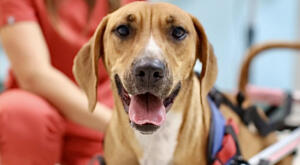Kennel Cough (otherwise called canine irresistible Tracheobronchitis) is an exceedingly infectious respiratory disease. Locations where groups of canines gather, such as dog parks, boarding facilities, doggy daycare and pet care offices are the breeding ground for the spread of Kennel Cough. Puppies can spread it to each other through airborne beads, contact from touching noses, or shared water or food bowls.
Kennel Cough is exceedingly infectious. Although treatable, it is most dangerous to puppies, geriatric dogs, and recently rescued pets.
Common Causes of Kennel Cough
Bordetella Bronchiseptica is the most common cause of Kennel Cough. If your dog’s illness is solely caused by this bacteria strain, symptoms typically last for just 10 days. Although some cases may last for 6-14 weeks.
More commonly, Kennel Cough is caused by a blend of both the Bordetella bacterium and another infection, typically either Distemper or Canine Influenza. When combined with an infection Bordetella the illness attacks the cells in the respiratory tract, potentially effecting the puppy’s trachea and larynx as well.
Symptoms of Kennel Cough
The most common indication of kennel cough is a persevering, and intense hacking cough. The hack may sound similar to a goose honk, or an inverted wheeze in smaller breeds. In some cases, the cough can be forceful enough to cause your dog to vomit after coughing.

Common symptoms include:
- Hacking Cough
- Wheezing
- Runny Nose
- Sneezing
- Sniffles
- Lethargy
- Loss of Appetite
- Low Fever
Although kennel cough is easily treatable, it’s imperative to contact your Veterinarian immediately. Young, unvaccinated pups are especially vulnerable to the disease and should receive treatment as soon as possible.
Spreading Kennel Cough
The bacteria that causes Kennel Cough spreads in three ways:
1. Through the Air
Every time a tainted puppy hacks, wheezes, barks, or even sheds dander they can spread Bordetella. The infection can live as long as fourteen days, waiting to be breathed in by another host. Once ingested, kennel cough quickly spreads inside the upper respiratory tract.
2. Touching Contaminated Surfaces
Bordetella also spreads by sharing a water dish, or even a toy. It can survive on a surface for 48 hours, prepared and ready to be transmitted to another pet.
3. Direct Contact with Infected Dogs
An infected dog can spread the disease easily through nose contact or sniffing each other during greeting. Vaccination is the best way to protect your dog. And if your dog does exhibit any symptoms of being ill, they should be kept away from all other animals until they are properly treated.
Treating Kennel Cough
With proper medical care from your Veterinarian and rest, typically Kennel Cough resolves itself within 14 days.
Since this disease primarily effects the trachea, your dog should avoid wearing a collar. A collar worn around the neck, can exasperate the hack and potentially damage the trachea. Switch to a chest harness if your dog has tendency to pull on walks.
Keep your dog isolated. If you have multiple pets in your household, keep the sick puppy gated in a separate area from all other pets while being treated. They should eat and drink from a separate bowls to limit the spread of disease.
Preventing Kennel Cough
Avoiding exposure to other animals is the best protections for your unvaccinated pet. Immunization against the Bordetella bacterium will keep your pet healthy. Most dog day cares and boarding facilities require immunization before they accept your pet. Your Vet to administer the immunization in one of three ways: orally, intranasal, or via shot. It is generally given in two dosages typically 2-4 apart, with a booster given at regular intervals.
Thank you to Harsh Arora for this submission. Harsh has worked in publishing and marketing since 2012. He began his career at Journal and has since worked and written for several top equestrian publications and Technology websites. Most recently, he worked in corporate marketing with a focus on strategic and digital planning. A lifelong dog, & horse owner, Harsh currently writes for Stallion House.


Related Articles:
Did we answer all your questions on "Kennel cough"?











I adopted a puppy from a pet store about 20 years ago (before I knew any better). I couldn’t resist him – he was the cutest little pug. They charged me an arm and a leg for him – nearly $2,000! I was young and naive. He had kennel cough and it was heartbreaking to watch and listen to. As I’m getting ready to get another puppy now, I want to make sure the same thing doesn’t happen this time, as I will be adopting a dog from a shelter. Thanks for sharing helpful information on the topic!
Hi Adrienne,
Adopting a pet is always a great option! Good luck on finding your new best friend!
Everything was put together perfectly. It’s difficult to say what was the best part of the article. It was all put together so well.